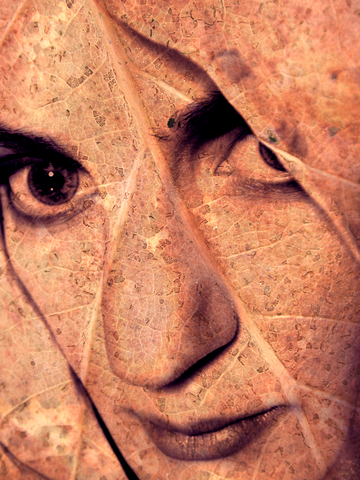 When it comes to health, many of us neglect our skin. But think about it: its protection allows us to function and when it is well cared for and it allows our inner beauty to shine through. And yet, few of us think beyond the obvious appearance issues to the fact that the effects of aging on skin can lead to certain dermatological conditions that cause illness and even death. Researchers say that in the U.S., a majority of people over the age of 65 have at least one skin disorder; in the UK, 70% of older people experience skin conditions, many of which are preventable.
When it comes to health, many of us neglect our skin. But think about it: its protection allows us to function and when it is well cared for and it allows our inner beauty to shine through. And yet, few of us think beyond the obvious appearance issues to the fact that the effects of aging on skin can lead to certain dermatological conditions that cause illness and even death. Researchers say that in the U.S., a majority of people over the age of 65 have at least one skin disorder; in the UK, 70% of older people experience skin conditions, many of which are preventable.
Guess what? I’m not simply talking skin cancer. Rather, I’m referring to dry skin, inflammatory eczema on the lower extremities, pressure ulcers (when an area of the skin breaks down due to pressure placed on it) tears, wounds itching and an increased bacterial and fungal infections.
The environment: Some of the challenges that we face are directly related to the environment. Factors like air pollution, smoking and of course, regular exposure to UV radiation can lead to deep wrinkles, age spots, and leathery appearance. The message is simple, if not obvious: don’t smoke, wear sunscreen and try to minimize regular exposure to smog infested cities (of course, the latter cannot always be avoided).
Physical factors: A condition known as xerosis cutis i.e. abnormally dry skin, occurs in up to 85% of older adults. It is related to a decline in skin fats and reduced secretion of sebum — the oily, waxy matter that is secreted to keep the skin lubricated and waterproofed. When the skin is abnormally dry, it can increase the inclination to itch and scratch, with in turn, may breakdown the skin and cause wounds and infections. Although there is little that can be done to avoid some of the natural processes of aging, it’s critical to avoid overwashing with soaps and detergents, both of which can remove grease from the skin and lead to scaling and itching. Importantly, air condition and heating. which dry out the air, can exacerbate dry skin and while humidity is uncomfortable, it’s critical. During winter, hydrate the air by running a humidifier. Regular use of emollient-rich creams and moisturizers, like Aveeno or Roc or Nivea can also ward off the time effects of dry skin. Be sure to read the label of popular moisturizers to insure that they contain humectants, which help draw water to the skin.
Another important consideration is the physical integrity of the skin and the way that the skin remodels itself as we age, increasing the predisposition to tears, wounds and pressure ulcers. Unfortunately, science has not caught up with the natural aging process and there isn’t a lot of strong evidence to support one strategy over another. There is indication, however, that knowing your risk before being exposed to situations that might cause pressure ulcers (e.g. bed rest) can help to insure that you take steps before they happen. Avoid rigorous scrubbing of the skin, especially over the bonier areas, as this can increase the risk of later problems. Treat stress incontinence or overactive bladder now, before it regularly exposes the skin to moisture that again, can cause problems down the line. And that eight glasses of water rule? It my actually help your skin in the long run – hydration is key! Avoid too much caffeine and insure that you are eating fruits and veggies with high water contents, like melon, tomatoes and lettuce.
An additional solution may be the use of 0.4% topical retinoids. Research has shown that retinoids can make skin look ‘more youthful, ‘ and may even increase the ability of polysaccharides to retain water in the outer skin layer and promote the production of collagen, which keeps the skin elastic. Additionally, some studies have shown that prolonged use of topical retinoids may improve the skin’s matrix, making it less susceptible to injury and pressure ulcers.
The bottom line is that our skin deserves a lot more attention than we give it and engaging in protective strategies now may result in a payoff later in life. Basic skincare is essential. There is no panacea but taking the appropriate steps will keep your skin the game of life longer.







I’ve always taken a minimal approach to skin care and makeup, but as I hit 60 I’m seeing some age-related changes so it’s time for moisturizing and hydrating for me!
If there is one thing I would have wished the teen me knew it was about the dangers of sunbathing. Two skin cancers so far and lots of spots and age marks related to skin damage!
Our generation used baby oil and astronaut foil! My dad’s generation didn’t use sunscreen at all. He has patches peeled regularly; I have a yearly derm exam for spots. Although we can’t reverse the past, we can certainly address the future.